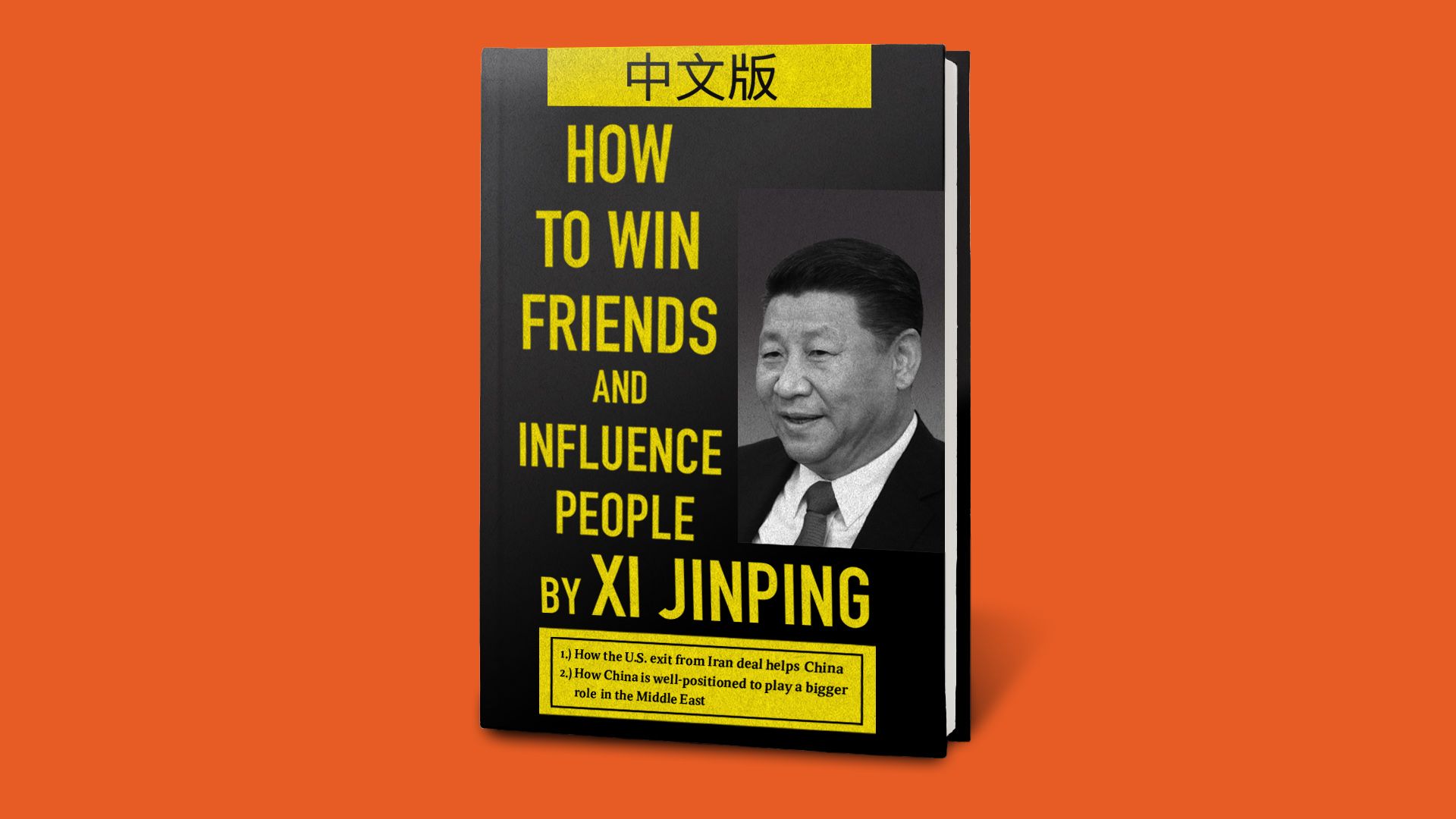China's long game for Middle East influence
Add Axios as your preferred source to
see more of our stories on Google.

Illustration: Sarah Grillo/Axios
China has stayed out of regional conflicts in the Middle East for decades, but with its massive international infrastructure plan, Beijing is finally ramping up involvement — and it's determined to win influence.
Between the lines: If it's successful, a big reason will be that China hasn't taken sides or made enemies in the Middle East. The question is how long that can last.
The big picture: Middle Eastern countries are interested in seeing what China's up to, but they're all hedging, says Barbara Slavin, who leads the Atlantic Council's Future of Iran Initiative. Still, they can be much surer about President Xi Jinping's longevity than they can about that of President Trump, she says.
The U.S. exit from the Iran deal leaves a lane open for China.
- Beijing is the top consumer of Iranian crude oil and is deeply invested in the region for its energy resources.
- Washington's sanctions on companies and countries that do business with Iran will hit European firms the hardest. That leaves room for China and Russia, both well-positioned to evade U.S. sanctions, to strike deals with Iran.
- The China National Petroleum Corporation partnered with the French oil and gas company Total to develop Iran's South Pars oil field, and if Total loses its stake in the deal due to U.S. sanctions, China could take over.
China is investing money and human capital in the Middle East.
- Under Xi's leadership, the Chinese are setting up new think tanks that focus on the Arab world and creating scholarships for language training.
- Chinese entrepreneurs are also settling and opening factories in the Middle East.
- One major project within China's Belt and Road infrastructure initiative is a railway from Kazakhstan to Iran, which Beijing has described as a tool to integrate Central Asia with the Middle East.
- China has also sought out the United Arab Emirates as a key partner in developing regional infrastructure. The two countries are close to signing onto a "Belt and Road exchange," reports CNBC.
- "China sees the UAE as influential but also small ... Maybe a nice-sized swimming pool to dip their toes in," says Chris Johnson, a former CIA China analyst who's now at the Center for Strategic and International Studies.
China is growing as a naval power in the Middle East and North Africa.
- In the past decade, China has used a global anti-piracy push to increase its maritime presence in the region, Dan Blumenthal, a former China director at the Department of Defense who's now at the American Enterprise Institute, tells Axios.
- China steadily developed relationships with Gulf countries for logistical and fueling purposes as part of the anti-piracy effort, and those ties culminated in China building a full military base in Djibouti. Earlier in May, China fired military-grade lasers at U.S. military planes from the Djibouti base.
Beijing hasn't made enemies in the Middle East — yet.
- "China's still a free rider. They will never make a difficult decision ... They've played both sides of the Iran–Gulf split; they will not get their hands dirty in Syria," says Blumenthal. The South China Morning Post notes that "six of the 11 vetoes cast by China at the UN Security Council since 1971 had been on resolutions concerning Syria."
- But Chinese nationals working abroad have been attacked by terrorists, and Beijing has a history of human rights violations against Muslim Uighurs in northwestern China. "China has one of the worst records on Muslim rights in the world," Blumenthal says. "The question is, how long do Muslim-majority countries turn a blind eye to that?"
